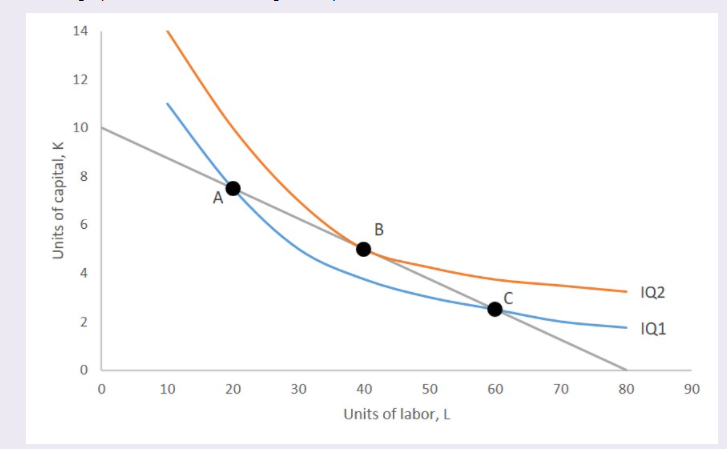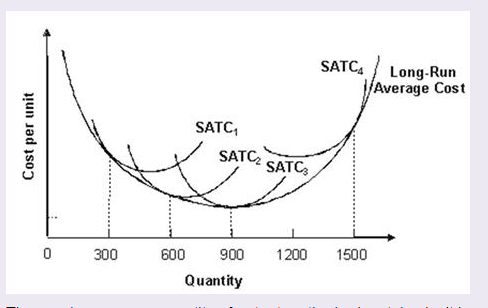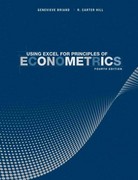Question
Question 1 The short run is defined as a period of time where a. all inputs can be changed, but only for a little while
Question 1
The short run is defined as a period of time where
a. all inputs can be changed, but only for a little while and then must be changed back to their original levels.
b. the firm always breaks even (earns zero profit).
c. only a small number of firms can enter or exit the industry.
d. some of a firm's inputs are fixed
Question 2
Your company produces Splagnards, a popular line of hats for Chinchillas. When you started the company and were its only employee, you could produce 30 Splagnards daily. After you hired the second through sixth employees, your total daily output became 35, 45, 60, 70, and 75 Splagnards, respectively. Given this production pattern, you would conclude that diminishing returns
a. becomes negative with the third employee.
b. set in with the second employee.
c. have not occurred with this set of employees.
d. begins with the fifth employee.
Question 3
The phenomenon of marginal product decreasing as employees are added to production is referred to as
a. diminishing returns.
b. zero economic profit.
c. increasing total product.
d. negative returns to scale.
Complete the following table before attempting the next three questions.
LL | TP | AP | MP |
|---|---|---|---|
| 1 | ___ | 100 | ___ |
| 2 | ___ | ___ | 20 |
| 3 | 150 | ___ | ___ |
| 4 | ___ | ___ | 15 |
Question 4
With two employees, TP = ______ and AP = ______.
Select one:
a. 100; 50
b. 90; 45
c. 130; 65
d. 120; 60
Question 5
With three employees, AP = ______ and MP = ______.
Select one:
a. 30; 40
b. 60; 35
c. 45; 27.5
d. 50; 30
Question 6
With four employees, TP = ______ and AP = ______.
a. 155; 38.75
b. 160; 40
c. 180; 45
d.65; 41.25
Question 7
In economics, a cost which must be paid regardless of the level of output production is called
a. diminishing returns.
b. a fixed cost.
c. zero marginal cost.
d. elastic overhead.
Question 8
When a technology improvement increases the output per employee, then the cost per unit of output will
a. decrease.
b. not change.
c. increase.
d. become negative.
Complete the table below before attempting the next three questions.
| Output | TC |
|---|---|
| 0 | $2000 |
| 100 | $2300 |
| 200 | $2,450 |
| 300 | $2,700 |
| 400 | $3,200 |
Question 9
What is total variable cost when 200 units of output are produced?
a. $450
b. $2,450
c. $300
d. $625
Question 10
At which unit of output (among those in the table) is average total cost minimized, and what is its (minimum) value at that unit?
a. Minimum occurs at 100 units, where ATCATC = $12
b. Minimum occurs at 200 units, where ATCATC = $9.25
c. Minimum occurs at 400 units, where ATCATC = $8
d. Minimum occurs at 300 units, where ATCATC = $6.50
Question 11
Marginal product is maximized (for the data represented in this table) when employees produce the _______ unit of output.
a. 300th
b. 400th
c. 200th
d. 100th
Question12
Your company uses both capital and labor in its production of Horgtoofs, the leading brand of cheese cube slicers. Capital costs $75 per unit and the employee wage is $25 per unit. The last unit of capital added 150 units of output, while the last unit of labor added 75 units of output. Your firm
a. is using the optimal (or output-minimizing) combination of labor and capital.
b. could produce the same level of output at a lower cost by using less labor and more capital.
c. could generate more output at the same cost by using less capital and more labor.
d. should use less of both inputs to optimize output.
Use the graph below for the following three questions:


Step by Step Solution
There are 3 Steps involved in it
Step: 1

Get Instant Access to Expert-Tailored Solutions
See step-by-step solutions with expert insights and AI powered tools for academic success
Step: 2

Step: 3

Ace Your Homework with AI
Get the answers you need in no time with our AI-driven, step-by-step assistance
Get Started


